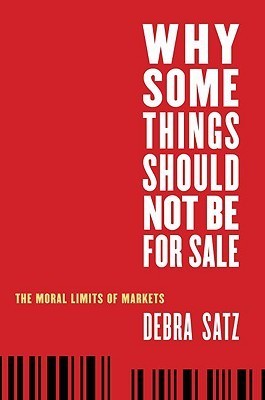What do you think?
Rate this book


264 pages, Hardcover
First published July 30, 2008
If living were a thing that money could buyMarkets are obviously a useful way to organise certain kinds of human activities. Based on this observation, many people who ought to know better have tried to convince us that markets should be used to organise more or less everything. In this short and informative book, Debra Satz, a philosopher who seems to know her way around the economics literature, offers some convincing arguments to the contrary. No, it's actually not a good idea to have the market organise everything; or, as the title succinctly puts it, some things should not be for sale.
You know the rich would live
And the poor would die.
- "All my trials", traditional